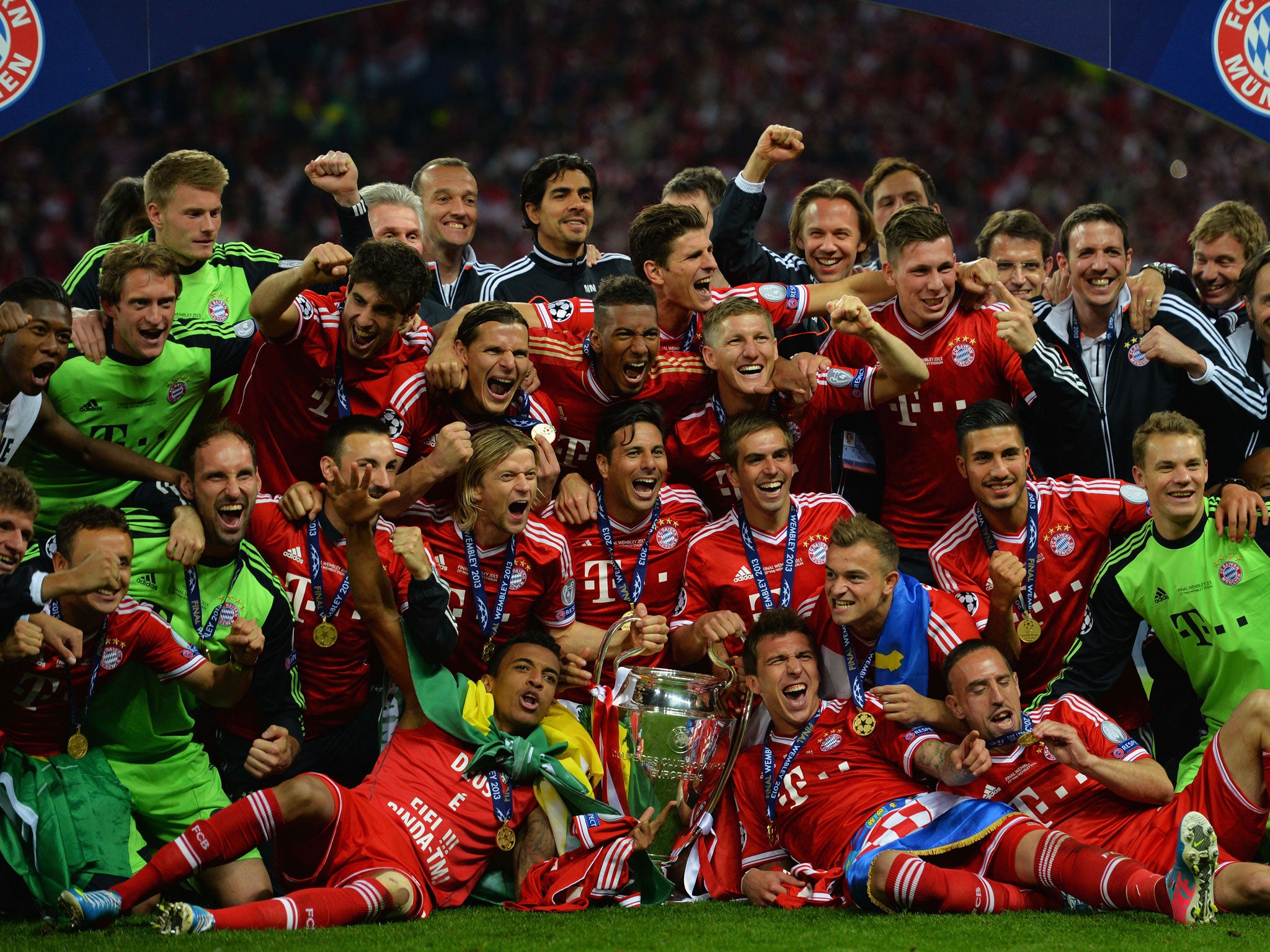The Calvin report: Stirring Champions League final shows how far English game must advance
No domestic teams could have sustained the pace or matched the invention

The Bayern Munich fans had smuggled their scarlet flares into the upper tiers at Wembley, and bellowed their theme tune, "Stern des Sudens", until they were hoarse. They sang of fire, life and love. European football has a compelling champion, and a fresh narrative to follow.
A final of fitting majesty, on a balmy evening, was an ideal setting for a coronation. For the massed ranks of the Borussia Dortmund fans, who stood at the end with their scarves raised above their heads in mute defiance, it felt like a funeral.
And so the wheel of history turned. Barcelona have succumbed to the built-in obsolescence which afflicts even the greatest teams. La Liga's position as football's finishing school has been assumed by the Bundesliga.
Germany came calling. A game of skill and spite, ebb and flow, will live long in the memory. It deserved the drama of its conclusion, and ended with Arjen Robben convulsed in tears of relief and vindication. His winner, 90 seconds from the end of normal time, provided an appropriate climax.
There were so many stirring examples to admire, so many lessons to absorb. When Bayern's adviser Paul Breitner, the Maoist class warrior who helped West Germany win the 1974 World Cup, spoke of the Premier League being in a state of "permanent regression", it was impossible to frame a convincing counter argument.
No domestic teams could have sustained the pace or matched the invention of a final that finally lived up to the hype. Dortmund counter-attacked with lacerating speed and intelligence; Bayern worked patiently and would have led handsomely by half-time but for Robben's temporary myopia.
He will be forgiven that profligacy. His ability to get behind the Borusssia Dortmund defence finally paid dividends on the hour, when he pulled the ball back for Mario Mandzukic to score one of the simplest goals of his career. The winner, after Ilkay Gundogan had equalised from the penalty spot, was exquisitely cruel, and commendably cool.
The English game will not move on until it acknowledges, and addresses, the fault lines of a system which permitted only 22 Academy products to make their Premier League debuts this season. That's seven fewer than the previous year, and exposes the revisionist nonsense that great strides are being made in youth development in the domestic game.
The teamsheets were statements of strategic intent. Philipp Lahm, Bastian Schweinsteiger and Thomas Müller are stellar products of Bayern's youth system. Marco Reus, a compelling presence, and Bayern-bound Mario Götze were nurtured at Dortmund, whose defender Mats Hummels, an immense presence on the night, was a boy at Bayern.
The winners lived up to the responsibility of representing the aristocracy of German football. A force in the Bundesliga for several generations, they have reached new heights in a season in which they have set no fewer than 29 separate records.
Their willingness to bully rivals, financially, was one of many intriguing sub-plots to a game which had elements of a coaching masterclass. The injured Götze, the embodiment of the divide between the finalists, required greater camouflage, as he sat in the stands, than a baseball cap, worn backwards. Dortmund's followers defaced his name, if it happened to be on the back of their shirts.
Dortmund, rescued from bankruptcy and reinvented as a people's club, had the vibrancy and optimism of the artless newcomer. Their fans provided the soundtrack to a stirring contest. They formed a sea of yellow, which lapped against the landmarks of the capital before sweeping, in a flood tide, across the east end of the Stadium. They sang incessantly to the co-ordinated rhythms of four drummers. It was authentic, and mesmerising.
They did not need plastic flags, the screeching inanities of Wembley's public address announcer, or the toe-curling pretensions of an opening ceremony in which Breitner bizarrely strode to the centre circle in a silver breastplate and full military uniform. The symbolic set-piece battle would have been an embarrassment had it been staged before 200 people on a village green, rather than in front of a TV audience in excess of 200 million.
Jürgen Klopp has the air of an urbane, but quietly subversive, university lecturer. He is the most compelling managerial presence since Jose Mourinho emerged, kicking and screaming, from his formative role as Barcelona's translator.
He threw his team at Bayern, and relished their audacity. Dortmund began assertively, pressing incessantly, and creating opportunities with their dynamism and width.
But, in the words of that Bayern song, the Song of the South: " No matter if it's the League, a Cup or Champions league, What can be more wonderful than a Bavarian victory?"
Subscribe to Independent Premium to bookmark this article
Want to bookmark your favourite articles and stories to read or reference later? Start your Independent Premium subscription today.

Join our commenting forum
Join thought-provoking conversations, follow other Independent readers and see their replies